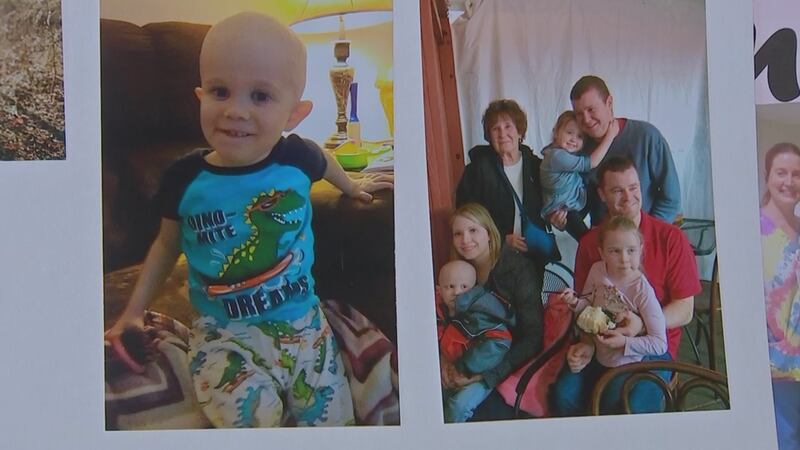The research happening in Oakland is making Pittsburgh a spot for medical tourism. That includes research that could make it possible to create a new life after childhood cancer.
Channel 11 sat down with the members of the Coyne family as they took us through the moment they found out their son, Landon, had a softball-sized tumor on his kidney in 2017. Landon was only 2 years old at the time.
As they learned about surgeries and chemotherapy and long hospital visits, another team approached them at UPMC. The team wanted to talk about Landon's future. Researcher Kyle Orwig explained why.
You can now customize your WPXI News App to receive alerts to for news that matters to you. CLICK HERE to find out how.
"Many of our patients receive chemotherapy or radiation treatments for cancer that can make them infertile," he told Channel 11.
One in three childhood cancer survivors is at risk of becoming infertile from their treatments. But researchers at the Magee Women's Research Institute are working to change that.
"When it was explained to us, it's almost like an insurance policy," Landon's father Greg Coyne said. "If you need it, it's there."
A team of doctors approaches parents at Children's Hospital and offers them the option of freezing reproductive tissue with hopes it can restimulate fertility when their kids are older and cancer-free.
Orwig and his team have collected reproductive tissue from 240 childhood cancer patients over the past nine years. It's too early for results in humans, but they recently had a break in their research. It involves a monkey named Grady. Researchers reintroduced cryopreserved tissue back into Grady's father and it made him fertile again. Grady was born last April and is progressing normally. We asked Orwig what this news meant.
"It changes the nature of our discussion with patients," he said.
Before, Orwig's team had to tell families in the preservation program that there was a chance they might have the right technology to make them fertile someday. For the Coynes, that hope was enough.
"We thought it would be a great idea to give him a chance at a family in the future, in case the medicine had other plans," Greg Coyne said.
Now, Orwig says he can tell patients the possibility will be a reality in the near future. His first patient is now 19 years old.
The Coynes said each family needs to make this decision on its own, but they were thankful to live in Pittsburgh where this groundbreaking research is underway.
"Hopefully, when the time is right for him, he will be able to have a family down the road," Josey Coyne said.
This research is attracting international attention and patients to Pittsburgh. Orwig said he sees the research moving to the clinical phase in the next two to five years.
TRENDING NOW:
- Boy killed in crash on Pa. Turnpike was with his dad for 'Take Your Child to Work Day'
- Employee at local swim school facing charges for inappropriate behavior
- Massive tree falls on car with women inside
- VIDEO: Homeless man saves motorists from fiery crash
- DOWNLOAD the Channel 11 News app for breaking news alerts
Cox Media Group






